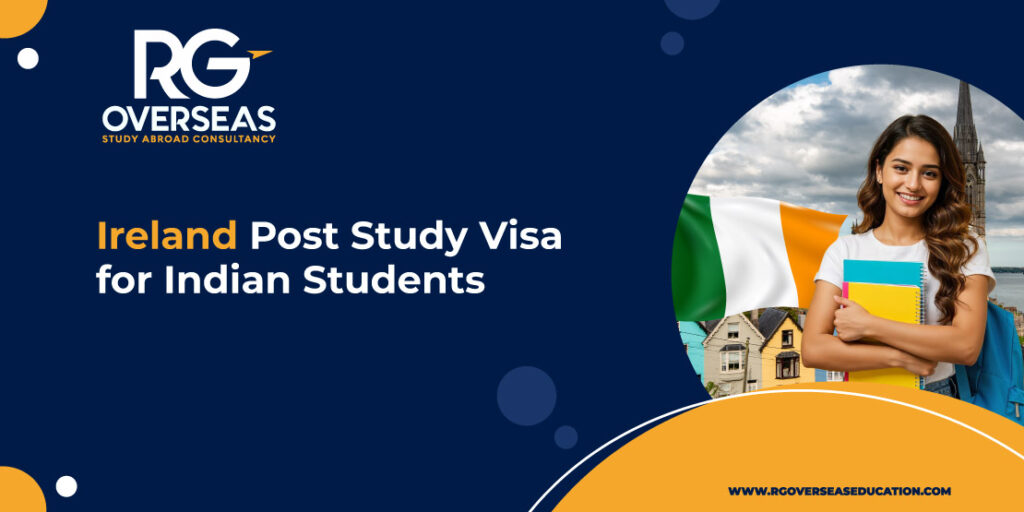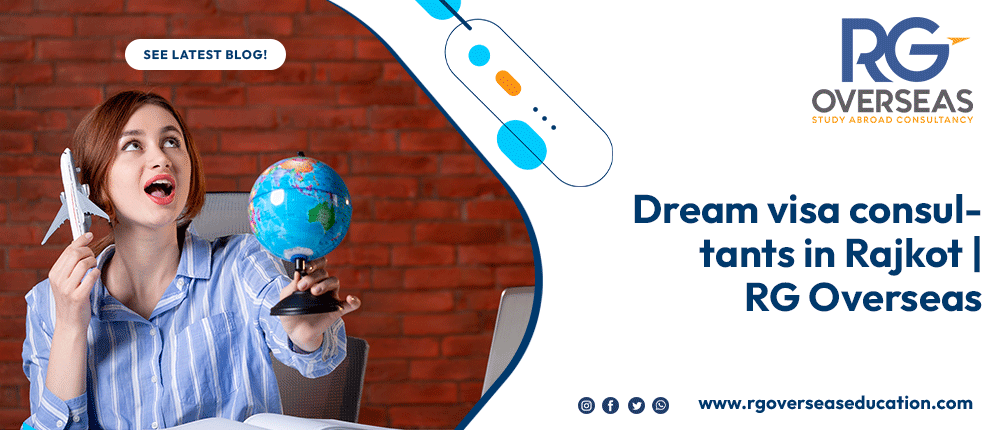
Imagine graduating from one of Europe’s fastest-growing innovation hubs and stepping straight into a thriving job market buzzing with multinational giants like Google, Pfizer, Meta, and Intel; that’s the experience Ireland promises. Ireland hosts over 1,500 multinational companies and serves as the European headquarters for top global firms in Technology, Pharmaceuticals, Fintech, and Med Tech sectors.
Over 40,000 international students enrolled in Irish higher education in 2023‑24, which was a remarkable 15% increase from the previous year. Ireland has cemented its place as a premier global study destination, offering not just world-class education but also an outstanding post-study career pathway. The country’s unique advantage lies in its combination of a welcoming English-speaking environment, a knowledge-based economy, and strong industry-academia collaboration.
What truly excites study abroad aspirants is Ireland’s generous stay-back options under the Third Level Graduate Programme (Stamp 1G). It offers a golden opportunity to work full-time, gain international exposure, and transition toward long-term career or permanent residency pathways.
If you are planning to pursue a Bachelor’s or Master’s in Ireland, understanding how the post-study work visa works can help you make the most of your time and investment. Let’s explore everything you need to know about this visa type in detail.
Post-Study Work Visa in Ireland Highlights
International graduates in Ireland have three primary options to remain in the country after completing their studies. Each option serves a different purpose and is suitable for different stages of a graduate’s career journey. Given below is a quick overview of these stay-back visa types:
| Type | Purpose | Extension/Duration |
| Third Level Graduate Scheme (Stamp 1G) | Allows non-EU/EEA graduates from recognised Irish Universities & Institutions to remain in Ireland and seek employment or take up Graduate-level work. | Level 8 graduates: 12 months stay‑back. Level 9/10 graduates: 12 months + a possible 12-month extension if conditions are met. |
| Critical Skills Employment Permit | Designed for highly skilled roles in occupations on Ireland’s Critical Skills Occupations List. | Typically issued for 2 years and can lead to Stamp 4 (long-term residence) after completion. |
| General Employment Permit | For roles that are not on the Critical Skills list but meet minimum salary and labour market test requirements. | Usually granted for 2 years initially, renewable for up to 5 years, after which you can apply for Stamp 4. |
Now that we have explored all the stay-back options available, let’s zoom in on the star of the show, the Third Level Graduate Programme, better known as the Post-Study Work Visa or Stamp 1G. This is the most popular stay-back visa type. Read ahead to know more about the stay-back duration for this visa.
Study Level-Wise Duration of Post-Study Work Visa in Ireland
Planning your career roadmap becomes easier when you know exactly how long you can stay after graduation. Ireland’s stay‑back duration depends on your level of qualification, giving you sufficient time to explore career opportunities.
Level of Study (NFQ) | Stay‑Back Duration (Stamp 1G) |
Level 8 (Honours Bachelor’s Degree) | Up to 12 months |
Level 9 / 10 (Master’s / PhD) | Up to 24 months (12 + 12 months extension) |
These durations act as a bridge between academia and professional life, giving students the breathing space to secure meaningful employment, gain industry exposure, and prepare for employment permits such as the Critical Skills or General Employment Permit. Up next, let’s check the financial part of this visa type.
Cost of Post-Study Work Visa in Ireland
Money matters can make or break study-abroad plans, and Ireland knows that. Fortunately, the Post-Study Work Visa under the Third Level Graduate Programme (Stamp 1G) comes with a relatively straightforward cost structure with no hidden hundreds of euros here and there. Knowing the cost ahead of time helps you budget properly. The main cost associated with Stamp 1G is the registration fee.
Type | Cost |
Registration/Renewal Fee under Third Level Graduate Programme (Stamp 1G) | €300 per application |
Note: This fee is payable by credit or debit card. Some categories (minors, certain dependents of EU citizens, etc.) may be exempt, but for the Third Level Graduate Programme, this is the standard fee.
With a clear fee structure, you can proceed to the next step of understanding the application eligibility prerequisites.
Eligibility Criteria for Post-Study Work Visa in Ireland
Eligibility isn’t just a box-ticking exercise; it’s your ticket to legally staying in the country, working full-time, and building a career. Knowing these requirements in advance ensures that your transition from student to young professional is seamless and stress-free.
To be eligible under the Third Level Graduate Programme, you must:
- Be a non-EU/EEA student who completed a Level 8 or higher qualification at a recognised Irish University or Higher Education Institution.
- Hold a valid Stamp 2 student visa at the time of application.
- Apply within 6 months of receiving official confirmation of your award.
- Not have exceeded the maximum permissible stay (7 years in most cases) under student permissions.
- Show proof of active job search efforts for extensions beyond the first 12 months (for Level 9+ graduates).
Once you know you are eligible, you can focus your energy on collecting the required documents. The subsequent section will help you with the updated list of essential documents that will help you set a strong foundation for everything that comes next in your Irish career journey.
List of Documents Required for a Post-Study Work Visa in Ireland
When it comes to securing your Stamp 1G permission, having the right documents ready not only speeds up the process but also saves you from last-minute panic or rejected applications.
Prepare the following documents carefully to avoid delays:
Document | Description |
Valid Passport | The biometric/photo page of your passport. It should be valid for the period of stay/renewal. |
Current IRP Card | Your Irish Residence Permit card showing your Stamp 2 permission (student). Must not have expired. |
Proof of Qualification | Final degree parchment/scroll or certificate, or official academic transcript or official letter from the awarding body confirming the result. If the graduation ceremony is later, transcript or result confirmation works. |
Medical Insurance | Valid insurance covering accidents, medical incidents, and hospital stays for the duration of your stay. Travel-only insurance is usually not sufficient. |
Evidence of Steps Toward Employment (For Level 9/10 Extension) | For renewals beyond the first 12 months: proof of job applications, interviews, registration with agencies, etc. |
Submitting complete and accurate documentation is like presenting a perfect passport to your next life chapter in Ireland. It shows the immigration authorities that you are well-prepared and serious about your future here. Once this step is done, your next big move of commencing the visa application becomes much smoother.
Application Process for a Post-Study Work Visa in Ireland
Figuring out the application process for your post-study work visa might seem intimidating, but with the right blueprint, it becomes a smooth journey. Changing the immigration permission for this visa type can be completed online within a few minutes.
Follow these steps to secure your Stamp 1G permission:
- Receive your Final Results/Notification: Wait until your Institution notifies you in writing that you have been awarded your qualification (Level 8, 9 or higher). Provisional results or awaiting graduation ceremonies are acceptable if you have a transcript or official confirmation.
- Check your Permissions & IRP: Make sure your current student permit (Stamp 2) is valid, and your IRP card is up to date. You must also check that your combined period of permission (studying + any prior graduate permissions) hasn’t exceeded the allowed limit.
- Apply Within Six Months: Apply for Stamp 1G within six months of being notified of your award. Do not wait too long, because once Stamp 2 expires or you miss the window, complications can arise.
- Prepare Documents: Collect all required documents as specified above.
- Submit Application via ISD Portal/Registration Renewal: Use the online platform through Immigration Service Delivery (ISD) for renewing your registration or applying for Stamp 1G. Many Institutions & Universities in Ireland also guide you through the Student Support Services or the International Office. Pay the application fees and submit.
- Receive New IRP with Stamp 1G: The processing can take a few weeks, often 3-5 or more, depending on the current backlog. After processing, you’ll get a new Irish Residence Permit showing Stamp 1G. Then you are permitted to work full-time under its conditions.
- If Eligible, Apply for Extension (for 24-Month Total): If your degree is Level 9 or higher, after the first 12 months under Stamp 1G, and you have demonstrated the required employment-search efforts, you can apply to renew for another 12 months to stretch your stay to 24 months.
Perks of Availing a Post-Study Work Visa in Ireland
Once you have Stamp 1G via the Third Level Graduate Programme, you have several advantages that can make your transition from student life to working professional life much smoother in Ireland. Some of the noteworthy benefits include the following:
- Full-Time Work Allowed: You can work up to 40 hours per week, unlike student visas, which limit hours during term time.
- Flexibility in Employment: You are not tied to a specific employer sector or necessarily limited by salary thresholds for this Visa. Though you cannot be self-employed or run your own business under Stamp 1G.
- Time to Explore & Network: You get more time to apply for jobs in your field of study, build contacts, internships, attend interviews, etc. This is especially useful in competitive sectors.
- Better Pathway to Employment Permits: Once you find a job that qualifies under work permit rules (e.g. Critical Skills Employment Permit, General Employment Permit), you can switch over. Stamp 1G acts as a bridge.
- Experience in a High-Growth Economy: Ireland continues to be a hotspot for multinational companies, so gaining Irish work experience enhances your CV and international exposure.
- Boost for Long-Term Residency/Immigration Profile: Though Stamp 1G itself does not directly grant permanent residency, it contributes to your work, experience, and time in Ireland. These are key inputs if you are aiming for longer-term permission or residency later.
These perks aren’t just nice to read; they are life-changing advantages that can shape your entire future. While we are talking about the future, let’s have a look at the permanent residency opportunities right in the heart of Europe after studying in Ireland.
Permanent Residency (PR) Opportunities in Ireland
While time on Stamp 1G doesn’t count directly toward citizenship or long-term residency, it provides a critical window to secure a qualifying employment permit. Graduates often use this period to:
- Obtain a Critical Skills Employment Permit (2-year permit leading to Stamp 4 eligibility).
- Transition to a General Employment Permit and subsequently build up reckonable residence.
- Build a strong case for Stamp 4 or naturalisation after completing the required number of years under the quantifiable residence categories.
Starting early with your stay-back visa sets you on a clear path toward that goal, helping you transition from student life to a stable, thriving career and life in Ireland.
If you want to maximise this opportunity, plan early, stay updated on immigration guidelines, and prepare your documents well in advance. For personalised, end-to-end guidance on choosing the right Irish University, handling student visa paperwork, and understanding the stay‑back process, connect with Ireland Experts at RG Overseas Education today. We’ll help you turn your Irish education into a thriving future ahead.


